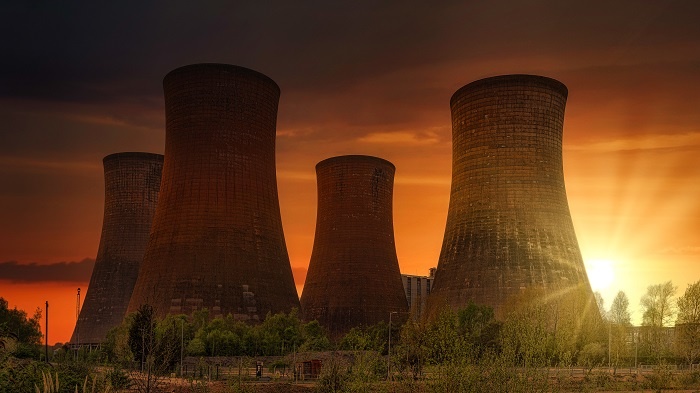Revolutionizing India’s Energy Landscape: The Rise of Biomass Briquettes in Sustainable Thermal Power Generation
In this post, we will delve into how biomass briquettes are transforming the way electricity is produced and their role in shaping India’s energy landscape.
With an impressive installed capacity of 399 gigawatts and an annual generation of 1,490 billion units, India’s electricity sector is dominated by coal, accounting for around 70% of the total generation
Look around you, and you’ll see that almost everything we use or rely on is powered by electricity. Whether it’s the device you’re using to read this or the appliances and gadgets in your home, electricity plays a significant role. In fact, it has become such an integral part of our lives that we can’t even imagine a moment without it. We have become dependent on this incredible source of energy.
While electricity has undoubtedly enabled the advancements and conveniences we enjoy today, there are also serious consequences that come with its generation. The traditional method of generating electricity often relies on fossil fuels like coal, which release massive amounts of carbon emissions. These emissions contribute to rising temperatures, climate change, and environmental disruptions that harm our delicate ecosystem.
It’s crucial for us to reflect upon our addiction to electricity and find sustainable and eco-friendly alternatives for its generation. One such alternative is biomass briquettes, the fuel used to generate heat via boilers which replaces coal.
India and Power Industry
India, one of the world’s leading electricity producers, heavily relies on fossil fuels, particularly coal, to meet its energy needs. With an impressive installed capacity of 399 gigawatts and an annual generation of 1,490 billion units, India’s electricity sector is dominated by coal, accounting for around 70% of the total generation.
This significant dependence on coal underscores its critical role in India’s energy mix and its undeniable impact on the country’s energy markets and economy. Ensuring a stable and uninterrupted supply of coal becomes vital for sustaining India’s thriving economy, making coal a major driving force behind our nation’s growth and development.
The Alternative: Biomass Briquettes Replaces Coal
Biomass briquettes serve as eco-friendly alternatives to coal, harnessing the power of biofuels for various applications. These renewable energy sources are derived from a range of biomass materials such as husks, shells, bagasse, agricultural waste, and municipal solid waste, depending on their availability.
By compressing the raw materials into convenient briquettes, they become highly efficient for combustion purposes and transportation.
Traditionally, biomass briquettes have been widely adopted as cooking fuel in developing countries due to their affordability and easy accessibility, particularly in rural areas. However, their application extends beyond cooking.
They have found increasing use as biofuels, being co-fired with coal in thermal power plants for electricity generation. In fact, the utilization of biomass briquettes in coal firing has experienced a significant surge in the past decade.
Viability of Biomass Briquettes for Thermal Power Generation
Biomass briquettes are a sustainable source of energy. The agricultural waste used to manufacture the briquettes is a readily available resource that would otherwise have gone to waste.
By using this waste as a source of energy, companies are reducing their carbon footprint and promoting environmental sustainability. The use of biomass briquettes also mitigates the impact of solid waste disposal, which is a growing concern in India.
The Indian government has recognized the potential of biomass briquettes for energy production and has provided various incentives to promote their use. For instance, the Ministry of New and Renewable Energy has implemented a Biomass Power and Bagasse Cogeneration Programme to provide financial assistance to project developers. The Indian government has also made it mandatory for thermal power plants to generate a portion of their power (10% of total consumption) from renewable sources.
Read this blog: Creating a Sustainable Future With Biomass Briquettes
Challenges Involved
While biomass briquettes show promise as a potential coal replacement for power generation, several obstacles hinder their widespread adoption.
The energy content of biomass briquettes, ranging from 3200kCal/kg to 4800kCal/kg, falls short compared to the considerably higher range of 3000kCal/kg to 8000kCal/kg found in high-quality anthracite coal.
Although biomass is abundant, its production or reserves are scattered, posing challenges in ensuring a steady and consistent supply.
Forest and agricultural residues are generated cyclically or seasonally, usually after harvest periods. This seasonal availability necessitates efficient collection and storage of the residue to ensure a continuous supply during periods of unavailability.
Biomass briquettes offer an array of possibilities for reducing carbon emissions, particularly in sectors that are challenging to decarbonize, like heavy manufacturing, long-haul, and heavy transport operations, iron and steel, cement, aluminum, and chemical industries.
By harnessing the power of biomass for energy production, we can help reduce atmospheric CO2 emissions, which are a byproduct of other fuels and sources. Additionally, if bioenergy is used for carbon capture and storage, the carbon that would otherwise be released into the atmosphere remains sequestered, leading to net negative CO2 emissions, a significant milestone towards environmental sustainability.
While large-scale implementation of carbon capture and storage is yet to be seen, several bioethanol production, waste-to-energy plants, and power generation applications have started to incorporate the methodology successfully.
Conclusive Note
The rise of biomass briquettes as a sustainable energy source is an important development in India’s energy landscape. The increased use of biomass briquettes for thermal power generation has the potential to mitigate the impact of fossil fuels on the environment, promote rural development, and provide a cheaper and more viable source of energy. It is encouraging to see the Indian government’s support for biomass briquettes for energy production, and we hope to see more companies and individuals adopting this sustainable energy source in the future.
Join us in shaping a brighter tomorrow – together, we can drive positive change and make a significant impact on our planet. Visit Buyofuel we are the biomass briquette manufacturer and supplier in india now and be a part of the sustainable energy revolution!”

